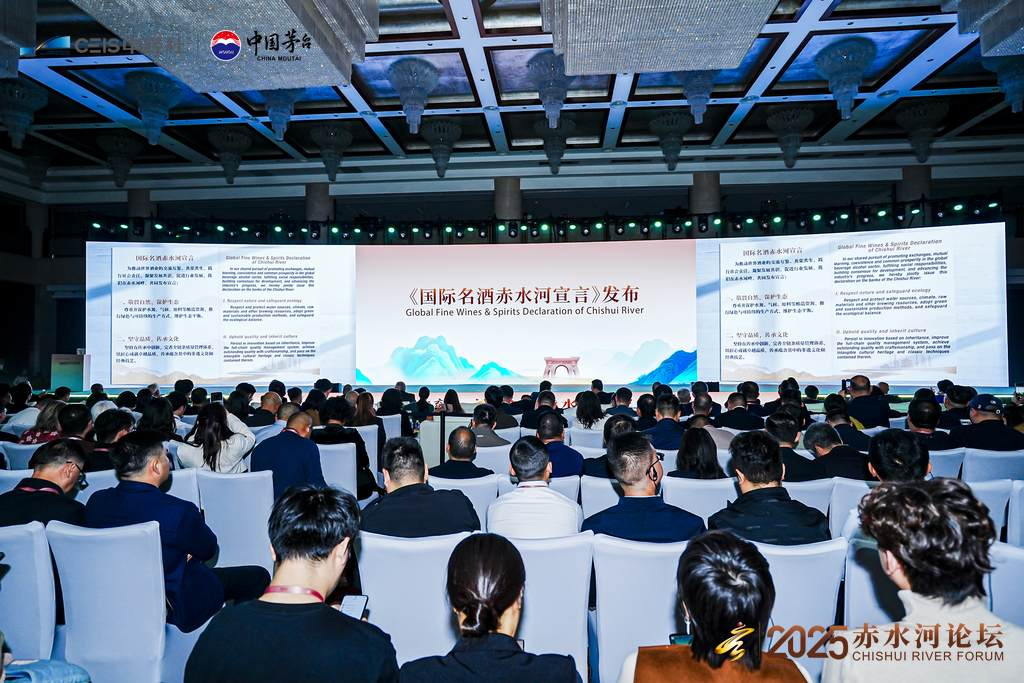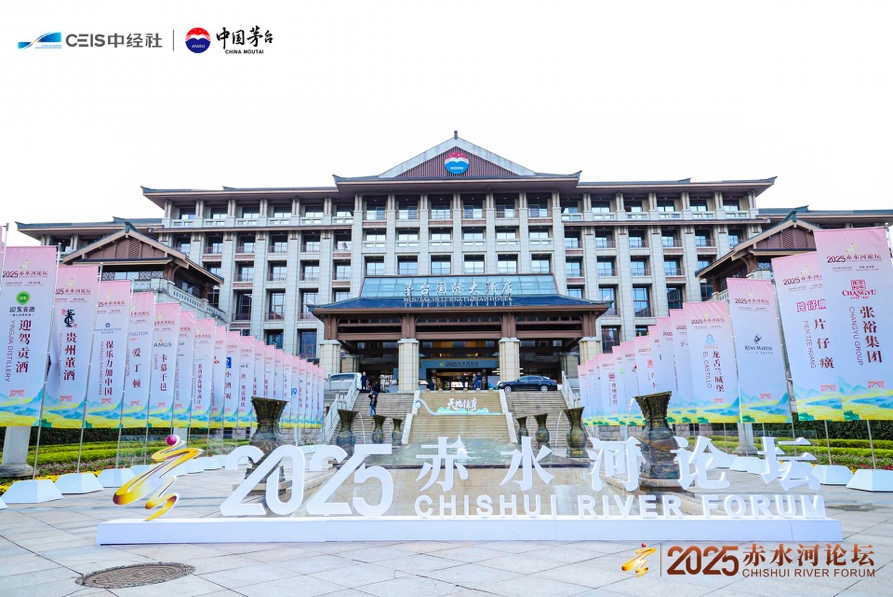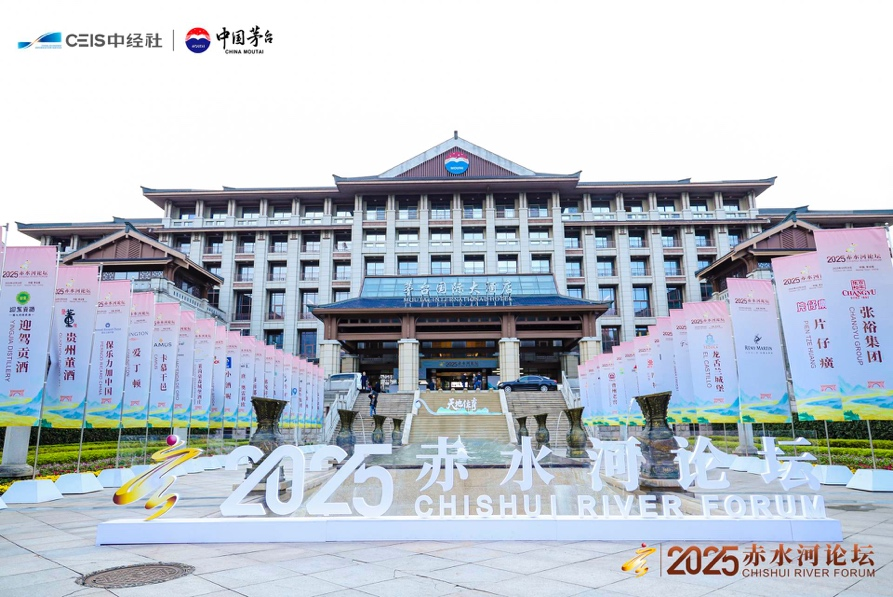BEIJING, Oct. 30 (Xinhua) -- When the 2025 Chishui River Forum opened in Maotai Town of Guizhou Province in southwest China, nearly 400 industry leaders, diplomats and business representatives gathered by the Chishui River to delve into the future of the global liquor industry.
Hailed as the "Davos of the liquor industry", the Tuesday event featured in-depth discussions on topics including ecological conservation, Gen Z consumer engagement, and digital transformation. It also witnessed the launch of a series of key cooperative initiatives, forging greater consensus on the global liquor industry's future development.
During its main forum, the "Global Fine Wines & Spirits Declaration of Chishui River" debuted with signatures from executives of 20 reputed Chinese and foreign liquor producers, initiating a campaign to jointly pursue a future of higher quality for liquor industry.

Photo shows the releasing of the "Global Fine Wines & Spirits Declaration of Chishui River" on Oct. 28.
As an industry-wide transformation underscores competition of comprehensive value instead of mere flavor and brand rivalry, global liquor industry still faces common challenges, such as adapting to changing consumer preferences, navigating increasingly complex supply chains, and addressing climate-related pressures.
Under such circumstances, a batch of research outcomes including a think tank report on global liquor culture, famous Chinese and foreign liquors development index report, the ESG report of sauce-aroma baijiu production zone -- Renhuai City of Guizhou, were released during the forum's thematic sessions.
By establishing scientific evaluation benchmarks, these reports provide practical pathways and theoretical support for addressing the aforementioned industry challenges.
As the famous Chinese and foreign liquors development index report says, global liquor consumption scenarios are evolving rapidly toward family and casual settings, with younger generations favoring low-alcohol and health-oriented liquors.
Meanwhile, increasingly popular ready-to-drink (RTD) products, non-alcoholic beverages and fruit-flavored mixed drinks have also diverted part of the traditional liquor demand, according to the index report.
The younger generations are more in a pursuit of brand stories and experiences, therefore liquor producers need to engage them through interesting, interactive strategies and products, said Tadeusz Dorda, founder and CEO of Chopin Vodka.
Consumers are increasingly demanding high-quality, personalized liquor products rich in cultural connotations, which means advantageous production zones, brands, and products hold greater development potential, noted Qin Shuyao, president of China National Association for Liquor and Spirits Circulation.

Photo shows the venue for 2025 Chishui River Forum in Maotai Town of Renhuai City in Guizhou Province.
Chen Benrong, deputy director of the Publicity Department of the Communist Party of China Guizhou Provincial Committee, said the Chishui River Forum has built bridges of communication between different civilizations, adding that global liquor entrepreneurs could find more opportunities for win-win cooperation in Guizhou in the future.
Chen Hua, board chairman of Kweichow Moutai Group, one of the initiators of 2025 Chishui River Forum said that by establishing a global platform for dialogue in the liquor industry, the forum deepened mutual learning between different liquor production zones and contributed wisdom to the sustainable development of global liquor sector.
(Edited by Duan Jing with Xinhua Silk Road, duanjing@xinhua.org)




 A single purchase
A single purchase









